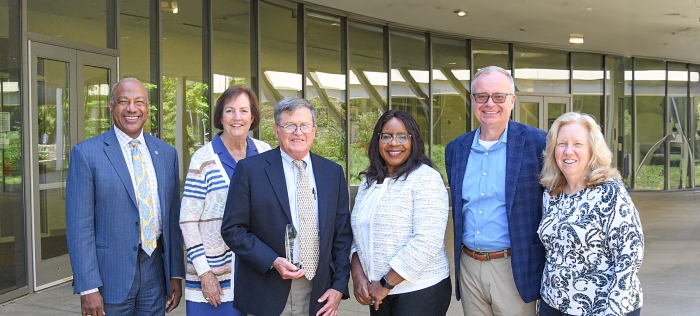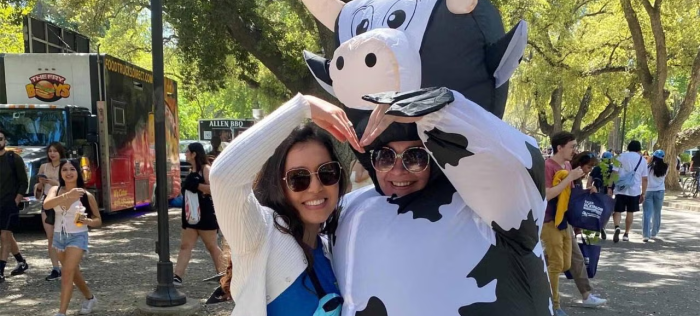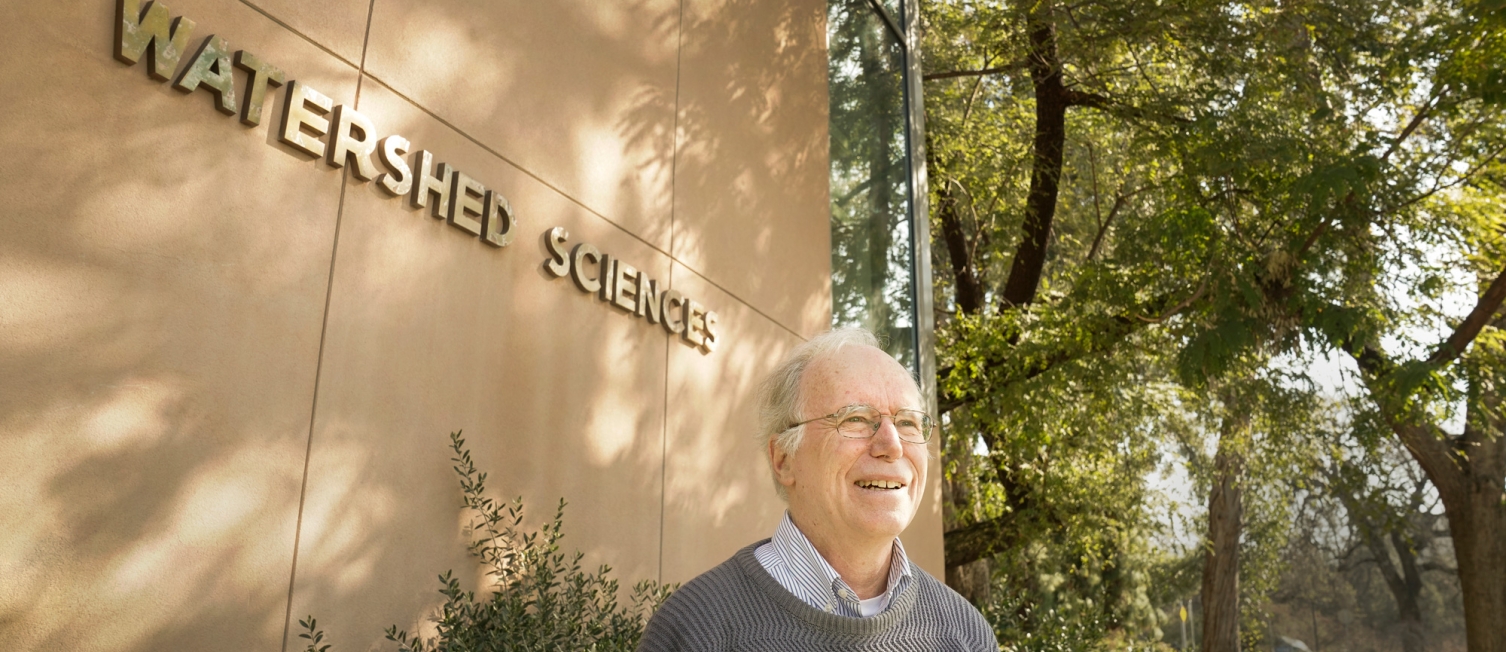
New endowment will support next generation of water management leaders
Jay Lund and his wife, Jean Lund, have created an endowment at the Center for Watershed Sciences to encourage interdisciplinary water management research in student dissertations
Quick Summary
- Lunds donating $800,000 to create Center for Watershed Sciences endowment
- The endowment will support multidisciplinary water research by grad students
- Lund, a faculty member since 1987, has had a lifelong passion for water
Jay Lund, distinguished professor of civil engineering, and his wife, Jean Lund, have given $800,000 to endow graduate student fellowships at the Center for Watershed Sciences, or CWS. It is the largest gift in the center’s history and will encourage interdisciplinary water management research in student dissertations.
“California will always have big water challenges that require insights and scholarship from more than one field,” said Lund, who is the vice director of CWS. “This endowment will fund students who are writing dissertations that combine ideas from several fields to help solve water problems in the state and globally.”
A member of the UC Davis faculty since 1987, Lund is a world-renowned expert in water management and has co-authored several books on the Sacramento–San Joaquin Delta. He has advised government agencies and organizations on water management issues, and his models and research have impacted water management policies worldwide.
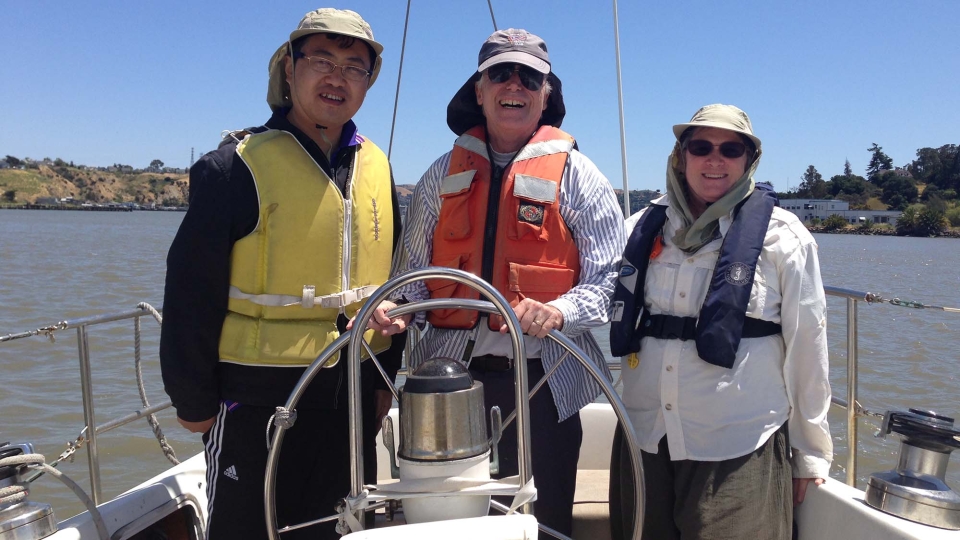
In 2018, Lund was elected to the National Academy of Engineering and in March he received the Faculty Distinguished Research Award, the Academic Senate’s highest academic honor.
“Professor Lund’s gift is an investment in transformational research and the next generation of water management leaders, both of which will have a profound impact at UC Davis and in the field,” said Chancellor Gary S. May. “This example of philanthropy from one of our own faculty members is just one more reason our university is a special place.”
Andrew Rypel, director of CWS, said educating students on the significance of and ways to conduct transdisciplinary science is at the very core of the center’s mission.
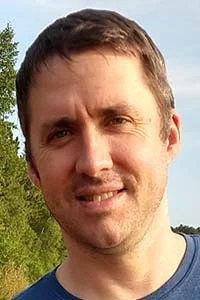
“The Lunds’ gift will facilitate transdisciplinary sciences at the center for years to come and support many future students,” said Rypel. “How fitting that this generous gift comes from the family of one of the pioneers of the center, who helped to originally foster this mission so deeply.
“We express our heartfelt gratitude for this generous gift, and I personally feel so humbled and honored to have worked with Dr. Lund over the recent years. He and his family have provided an amazing gift to UC Davis, to young people, science and the future of ‘the Shed,’” Rypel said, using a nickname for the Center for Watershed Sciences.
Lund has been a part of CWS leadership since 2007. He served as director for over 12 years and has played a key role in shaping its interdisciplinary focus. The center is California’s leading academic institute in the study of critical water challenges and sustainable solutions for managing rivers, lakes, estuaries and more.
“It is truly inspirational when someone gives back to the place where they’ve dedicated their career,” said Shaun Keister, vice chancellor for Development and Alumni Relations and president of the UC Davis Foundation. “Professor Lund’s gift is a testament to his years of teaching and research and will ensure that his legacy carries on for years to come.”
The gift supports UC Davis’ $2 billion fundraising campaign, Expect Greater: From UC Davis, For the World, the largest philanthropic endeavor in the university’s history. Together, donors and UC Davis are advancing work to prepare future leaders, sustain healthier communities, and bring innovative solutions to today’s most urgent challenges.
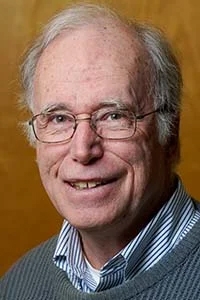
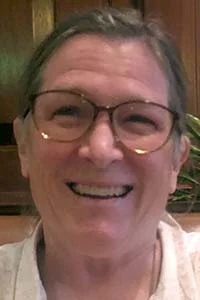
Solving challenges with creativity
The Lund Water Management Dissertation Fellowship will support Ph.D. students at CWS conducting interdisciplinary research. The center, which is part of the UC Davis Institute of the Environment, offers students opportunities to have an impact both here and beyond UC Davis.
“The way we do research at the Center for Watershed Sciences is very engaged with decision-makers, stakeholders and people outside of the university,” Lund said. “Our ideas appear in California legislation and practices. It provides a lot of great opportunities for students to see how academic ideas can relate to real problems out in the world.”
Lund aims for the fellowship to encourage students to pursue their own interests and think creatively to solve problems, without the barrier of financial limitations.
“Often, the students who end up changing the field have ideas that are more novel than the typical funding sources support,” he said. “This type of funding allows students to develop intellectually on topics that are of their own selection.”
UC Davis a key player in water issues
Lund stresses that addressing future challenges in water management — intensified by increasing demands and climate change — requires innovative thinking from many different fields like economics, politics, engineering, sociology and more.
“Water management is a foundation of all societies and civilizations at any time in history,” he said. “It will become more evident as the climate changes. To me, working in the water field involves all the diverse aspects of a society.”
He added that UC Davis is the best place for collaborative, hands-on water research and the work here can serve as a model for other places in the world.
“We are in the center of things when it comes to water management,” Lund said. “UC Davis is in a uniquely good position to work on problems that the whole world has and contribute solutions to them.”
The next generation of grad students
Lund’s passion for water started before his career — he is a lifelong sailing enthusiast. He and Jean met in a sailing club as students at the University of Washington, and have sailed extensively together.
During the last year of his own Ph.D. dissertation, Lund received a fellowship to study civil engineering, architecture and other fields in Scandinavian countries. Now Lund hopes to support today’s students in a similar way.
“Every student’s personal experience will be different, but graduate school has always been hard,” he said. “You have to learn how to operate with a great deal more independence than you had to as an undergraduate, and it takes a lot of psychological reorientation. Having more secure funding can be helpful in that process.”
Media Resources
Clémentine Sicard ’20 is a staff writer for the Office of Development and Alumni Relations. She can be reached by email.

